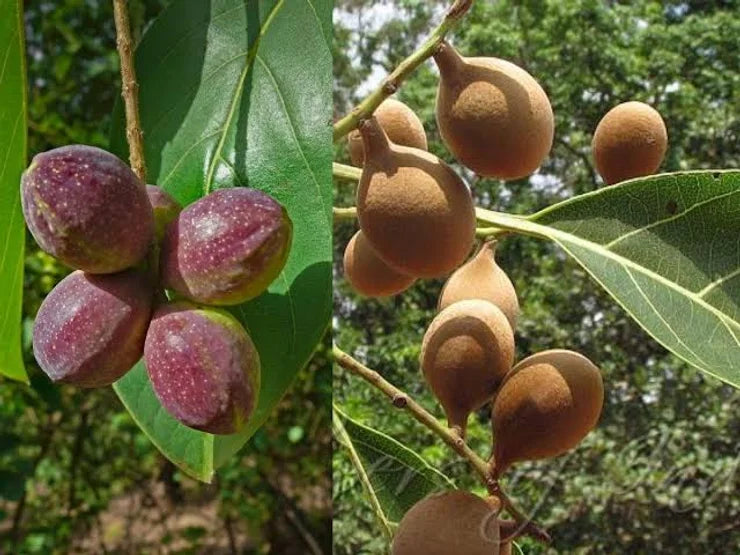Baheda is also known as “Bibhitaki” in Sanskrit which means “The one that keeps away from diseases”. It is one of the main constituents of “Triphala” which is used for the management of common cold, pharyngitis and constipation. Baheda tree is a large deciduous tree found in the greater part of India. All parts of the tree are used for medicinal purposes, especially the dried fruit. The fruits of Baheda are astringent (bitter) and acrid (sour) in taste.

Therapeutic Uses of Behada
:
Various parts of behada plant have therapeutic properties are listed below.1
Behada fruits:
-
Asthma
-
Bronchitis
-
Hepatitis
-
Diarrhoea
-
Piles
-
Dyspepsia
-
Eye diseases
-
Hoarseness of voice
-
Scorpion sting
-
Hair tonic
-
Menstrual disorders
Behada green fruit decoction
-
Cough
Behada fruit pulp:
-
Diarrhoea
-
Leprosy
-
Piles
-
Dropsy (oedema/swelling)
Behada ripe fruit:
Purgative
-
Narcotic
Behada bark gum and kernel oil:
-
Purgative
-
Rheumatism
Behada leaves:
-
Stimulates appetite
-
Relieves piles
-
Lowers cholesterol
-
Lowers blood pressure
-
Boosts immunity
-
Prevents ageing
Benefits of Behad
a:
1. Benefits of Behada for Ulcers:
The antiulcer activity of extract of behada fruits was investigated in animal models by determining the ulcer index. In a study, the behada extract exhibited significant inhibition of stomach ulcers, decreased free acidity, total acidity, gastric volume, protein and pepsin content while increasing the mucus content, altogether lowering the ulcer index.
2. Benefits of Behada for Fertility:
Behada fruit extract has shown antifertility a
nd antiandrogenic properties in animal studies. The male reproductive organs such as testis, epididymis, vas deferens, seminal vesicle, and ventral prostate significantly reduced after the administration of fruit extracts. Furthermore, extract administration significantly reduced sperm motility and density. The activity of behada fruit extract is thought to be due to selective androgen deficiency in the epididymis, which affects sperm motility and metabolism.
3.Benefits of Behada for O
besity:
The anti-obesity activity of behada fruit extract was studied in obesity models in animals. According to the fin
dings, behada fruit extract can prevent obesity in diabetic mice by lowering body weight, fat deposition, insulin resistance, and lowering plasma and hepatic lipid levels.
Another animal study looked at the effects of behada fruit extract on a diet-induced obesity, looking at changes in body weight, feed and water consumption, body temperature, body-mass index, organ weight, and lipid profile. The findings of the study indicated that oral administration of extract considerably improved the above parameters.
4.Benefits of Behada for Wound Healing:
Studies have investigated the wound heali
ng efficacy of behada fruit extract. The extract paste was used and improved fibroblast function, glycosaminoglycan synthesis, and collagen deposition, all of which are necessary for wound healing.
5.Benefits of Behada for Liver:
Researchers examined the liver-protective effects of behada fruit extract and its active ingredient, gallic acid, in lab animals. Biochemical parameters such as serum enzymes, lipid peroxidase, and glutathione demonstrated improvement.
6.Benefits of Behada for Diabetes:
Investigators have studied behada fruit extracts for their anti-diabetic properties. With the restoration of body weight and total serum protein, the fruit extract significantly enhanced plasma insulin, C-peptide, and glucose tolerance levels. All biochemical markers, including total cholesterol, triglycerides, urea, uric acid, and creatinine, showed improve
ment, preventing diabetic kidney complications and dyslipidemia.
7.Benefits of Behada as an Antioxidant:
The behada fruit extract exhibits antioxidant activity due to presence of enzymatic and non-enzymatic antioxidants. It can be potent against infections and several diseases. The antioxidant activity of behada extract fractions was demonstrated by scavenging free radicals that cause cellular damage.
8. Benefits of Behada for Lung:
The behada crude extract was studie
d in animals to evaluate bronchoconstriction. It produced bronchial smooth muscle relaxation in animal trachea and thus might be helpful in lung airway diseases in humans.
How to Use Behada?
-
Behada fruits1
-
Behada green fruit decoction1
-
Behada fruit pulp1
-
Behada partially ripe fruit1
-
Behada bark gum and kernel oil1
-
Behada leaves1
Precautions to Take with Behada:
The safety studies of behada on pregnant and breastfeeding women have not been conducted. Therefore, it should only be taken under the supervision and advice of a physician. No research has been done on the safety of behada in children.

